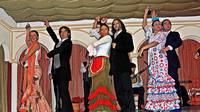
Biological and Cultural Origin of the Filipino and his Opposing Value Orientations
Biologically and culturally, the Filipino is a hodgepodge, a mixture or blending of different racial strains, the indigenous or primitive strains (Negrito, Aeta, Ati, Ita, Pygmy or Baluga), mixing and blending with the Oriental or eastern strains (Indonesians, Malays, Chinese, Japanese, Arabs, Thais, etc.) and with the Occidental or Western strains (Spanish, Americans, Portugese, English) but with the Malay strain predominating.
With regard to his values, the Filipino is pulled towards the opposite directions of two conflicting value orientations – the eastern or oriental and the western or occidental value orientations. This accounts for the Filipino’s inconsistency in his patterns of behaviour. Thus, the Filipino gravitates towards the opposing value orientations, such as non-rationalism vs. rationalism, personalism vs. impersonalism; particularism vs. universalism, and nationalism vs. internationalism.
Filipino nationalism has been criticized as suffering from two social ills: colonial mentality and national amnesia leading to lack of national consciousness and lack of national identity.
The Filipino Oriental and Occidental Value Orientations Dichotomy
The oriental value orientations of the Filipino include non-rationalism, personalism, particularism, and nationalism. His occidental value orientations include rationalism, impersonalism, universalism, and internationalism.
NON-RATIONALISM VS. RATIONALISM
- involves the belief in the supremacy of nature and forces outside of oneself like the belief in ghosts, spirits, gods or deities, and other supernatural beings. It involves an uncritical acceptance, reverence and protection of traditions and rituals, unquestioning obedience to authority and loyalty to one’s group. One’s successes or failures, victories of defeats, joys or sorrows, good or bad fortunes depend upon the will and power of some supernatural gods or spirits who will take care of everything and everybody. A non-rational person is traditional, fatalistic, dogmatic, superstitious, conformist and unscientific.
Examples: Bahala na (from Bathala na); dependence on the espiritista and mangkukulam; reliance on amulets, gayuma or anting-anting; use of phrases such as “itinalaga ng Diyos”, “Iginuhit ng Tadhana”, “gulong ng palad (life is like a wheel of fortune) “males” (bad luck), “swerte” (good luck) “kagustuhan ng Maykapal” kapalaran (destiny or predestination), fatalism and superstition.”
Some Filipino sayings or maxims bear non-rationalistic notions.
“Ang kapalaran dudulog lalapit kung talagang akin”.
“Pag di ukol ay hindi bubukol.”
“Nasa Diyos ang awa, nasa tao and gawa.”
“Lahat ng bagay sa balat ng lupa, bigay at kaloob ng Poong Bathala.”
“Bawat nilalang na isinilang may nakatakdang kapalaran”
“Ang buhat ay parang gulong ng kapalaran: minsan nasa ilalim, minsan nasa ibabaw.”
- on the other hand, involves a belief that by systematic planning, studying, and training, one can actually control and manipulate his or her destiny; one is thus greatly responsible for his or her own success or failure. A rational person is scientific-oriented, liberal and sceptical. He or she attaches high value upon individualism, self-expression, self-reliance, self-determination, critical mindedness, open mindedness, productivity and creativity.
Rationalism refers to the belief or doctrine that all knowledge and truth is found only in reason, that it is ascertainable by rational processes of thought, and that there is no supernatural revelation.
Examples: Pagkamakatwiran, kasipagan, pagplaplano sa buhay; paghahanda sa kinabukasan, makaagham; di-makapaniwalain; mapagmasid mapagsuri; bukas na isipan; pagtitiwala sa sarili; paghasa sa katalinuhan.
Some Filipino sayings or maxims bear resemblance to rationalism:
“Ang maniwala sa sabi-sabi walang bait sa sarili.”
“Ang lumakad ng marahan kung matinik ay mababaw”;
“Ang lumakad ng matulin kung matinik ay malalim.”
“Ang may isinuksok sa dingding ay may titingalain.”
“Kung ano ang itinanim ay siya mong aanihin.”
“Mas maganda and kinabukasan kapag may pinag-aralan.”
“Walang kamalasan sa taong may kasipagan.”
“Kapag may katwiran ipaglaban mo.”
PERSONALISM AND IMPERSONALISM
- refers to the tendency to give due importance to intrapersonal and interpersonal relations in working arrangements. Kinship, whether by blood or ritual; friendship and intimacy are considered in getting things done. As Fr. Bulatao has observed, the Filipino way of doing things is centered too much on personalities. The Filipino has the inability to dissociate personalities from functions and positions. Thus, it is extremely dissociate personalities from functions and positions. Thus, it is extremely difficult for the Filipino to be really objective in making judgments. Likewise, Santos Cuyungan (1961) says that personalism lies behind many charges of nepotism, favouritism, and graft and corruption in government. Example: Kaibigan, kamag-anak; comadre and compadre, use of intermediary or go-between, utang na loob, hiya, amor-propio, SIR, pakikisama, nepotismo, paboritismo, areglo, pakiusap, lakad and palakasan system.
Impersonalism, on the other hand, refers to the tendency to eliminate the influence of friendship or kinship in working relations. Behavior is depersonalized, standardized, or institutionalized. Thus, the function of the position, and not of the person occupying it, sets the patterns of behaviour in the group. Working relationship is based on merit and qualifications. It is the opposite of personalism. This is exemplified in the expressions walang personalan, trabaho lamang; walang malakas, walang mahina, walang palakasan; ang hustisya ay para sa lahat, walang mahirap, walang mayaman.
PARTICULARISM VS. UNIVERSALISM
- refers to the tendency of a person to center his or her concern on his or her concern on his or her sub-groups made up of relatives, friends, colleagues, associates, religious affiliates or members of his of her ethnic/regional group in the larger society to which he or she belongs.
Examples: Tayo-tayo system; kamag-anak system; compadre system; regionalism; fraternity and sorority ties; kapartido-system; kapatid sa pananampalataya; kababayan; kapangkat; kapatiran.
Universalim, on the other hand, refers to the tendency to focus one’s attention and concern on the promotion of the national and common weal. The emphasis is on the general welfare of the whole society. It eliminates familial, kinship, friendship, political, religious, or ethnic relations in working relationships and getting things done.
Examples: Kagalingang pambansa (public welfare); katarungan panlipunan (social justice); pambansang kamalayan (national consciousness); pambansang pagkakakilanlan (national identity); sa batas lahat ay pantay-pantay (equality under the law); pambansang paglilingkod (public service)
NATIONALISM VS. INTERNATIONALISM
- is the advocacy of making one’s own nation distinct and separate from others in intellectual, social, cultural, economic, political, and moral matters. It is the feeling of oneness among the nationals who seek to establish the identity and the good of the nation in these matters. More than just a sentiment of love or affection or a philosophy or a doctrine of what a nation is, what its goals are, and how it is to achieve its goals. The development of Filipino nationalism has been motivated by national slogans and movements like: Mabuhay ang Pilipino Movement; Rekindle the EDSA spirit; Taas noo, Pilipino; Bayan ko, mahal ko; Isang bansa, isang diwa, isang wika.
on the other hand, rests, on the belief in having friendly relations between and among nations for their mutual and common benefit. It is the advocacy of making nations of the world as one global community, removing all geographical, cultural, social and cultural barriers towards the community of nations and making all peoples as citizens of the world. This may sound an utopia, but it seems the western idea of globalization and the American hegemony plan is geared towards that direction.
















